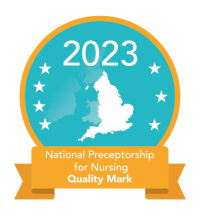What happens next?
Clinic appointments
Following completion of your treatment for breast cancer you will not need to be seen for regular follow up appointments. This is because research informs us that returning to hospital for appointments can cause many people unnecessary worry and anxiety. Research also indicates that very few problems
related to breast cancer recurring are picked up by attending routine follow up appointments.
Instead of routine follow up appointments, you will have an ‘open appointment’ with us. This means that at any time in the future you develop a concern or problem that you feel may be related to your breast cancer or its treatment you can call us to book an appointment to see a doctor. Therefore you have open access to our clinics. You can either phone our clerical team to book an appointment on 0117 414 7000 (pick option 1) or if you wish to discuss your concern with your breast care nurse first before making an appointment please telephone her direct.
Mammograms
You will be booked into our mammogram follow up service. You will be called for a mammogram one year after the date of your surgery and then each year until you are five years from surgery. If at that time you are you are under the age of 50 you will continue to have yearly mammograms until you reach screening age (47 - 50). If you are aged over 50 years you will then be able to access mammograms through the NHS Breast Screening Programme. During the time that you are having mammograms via our service you should not attend the NHS Breast Screening mammograms (although they will continue
to call for you).
How to help yourself
Self-examination
We would ask you to check your breasts regularly for any changes. Some women find it emotionally difficult to do this so please contact your breast care nurse for advice/support if you wish to talk this through with her.
If you have had surgery as well as radiotherapy to your breast you may find this is firmer and ‘lumpier’ than your other breast. This is due to both the radiotherapy and surgery. Your first self-check will then make you aware of what is ‘normal’ for you and you will be more aware of any new changes.
This may be a new lump in the breast tissue or any change in shape. If you have had a mastectomy (with or without reconstruction) be aware of any new lumps or nodules on the skin.
The department has a number of different leaflets to help you on what changes to look for. If you notice changes you can either ring to discuss your concerns with your breast care nurse or telephone our clerical team to book an appointment (0117 414 7000). We will always ensure that you will be seen
in the next available clinic.
Other symptoms
If you experience any of the following problems it may be useful to telephone the Breast Care Centre to book an appointment to see a doctor.
- An increasing pain for more than three weeks in a bone that does not ‘come and go’ but gets steadily worse over time. The pain may be a dull persistent ache that often gets worse at night when the muscles are relaxed
- Loss of appetite or weight loss as well as feeling really tired (lethargy)
- Increasing breathlessness and/or a continuing cough
- A new lump or change in your breast(s)
- If you have had a mastectomy any new lumps/nodules in the skin
- A swelling by your collar bone (clavicle)
It is very important to remember that any of these symptoms or any others you are worried about does not mean this will be cancer. Bone pain can be arthritis, strain or injury. Breathlessness can be caused by a cold or flu. If you come to the clinic it is not uncommon for you to be advised to have tests such as a bone scan or CT scan. This will be done as quickly as possible to minimise the ‘worry time’ for you.
Medication
If you have been prescribed any of the breast cancer tablets and experience any problems with these your doctor will be happy to see you in clinic to discuss your concerns.
If you have been prescribed Tamoxifen, which is a drug used to reduce the risk of breast cancer in women before they go through the menopause. This can be changed to a different drug if you become post-menopausal (this would be when you have not had a period for at least 12 months). If this happens to you please ring the Breast Care Centre to book an appointment with your doctor on 0117 414 7000 (pick option 1).
Emotional support
Breast cancer treatment can be an emotional ‘roller coaster’ and coming to the end of treatment can be a relief but also can feel frightening. Please do not forget that your breast care nurse is able to help with supporting you through this time and the patient support group Bosom Buddies always welcomes new people.
© North Bristol NHS Trust. This edition published June 2022. Review due June 2025. NBT002955

